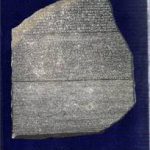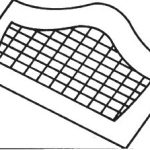2007
Darren Tofts and Lisa Gye introduce the collection of essays, appearing here in the electropoetics thread, from the Alt-x e-book The Illogic of Sense.
Rowan Wilken sets himself the challenge of theorizing the unrepresentable in relation to the architectural model of the diagram.
Marcel O'Gorman offers a candid account of what it means to introduce the computer apparatus into teaching in the humanities.
Michael Jarrett practices an Ulmer-inspired heuretics to write about rap.
Jon McKenzie, a former student of Gregory Ulmer's, traces the relations of influence and mentorship.
Linda Marie Walker writes an involved meditation on the concept of the interface and its relation to place.
Niall Lucy enacts a writing that weaves critical and theoretical speculation, rock journalism, hagiography and autobiography.
Craig Saper ingeniously interprets Gregory Ulmer as an object of study, as both a vehicle and driver of signification.
NINES is an initiative at the University of Virginia to "establish a coordinated network of peer-reviewed content and tools." We present the project here because it's consistent with the initiative at ebr to create a peer-to-peer literary network for conceptual writing.
Bethany Nowviskie of the University of Virginia introduces the COLLEX tool, a "COLL-ection" and "EX-hibition" of online images and interlinked texts. Nowviskie's white paper is the first essay to be "wrapped" into the ebr interface. That is, the essay has itelf been collected, tagged, and interlinked with the essays in ebr. This way, the essay is not just about the development of a semantic network - it is part of one.
As I thread my way through ebr, I touch base with the artificial intelligentsia that my work circulates in. The artificial intelligentsia is an internetworked intelligence that consists of all the linked data being distributed in cyberspace at any given time, one that is powered by artistic- intellectual agents remixing the flow of contemporary thought.
Kiki Benzon and Mark Z. Danielewski discuss his 2006 book Only Revolutions at the International Festival of Authors in Toronto.
There has never been a 'Best of the electronic book review' or a print collection. After ten full years of online publication, ebr has devised other ways of marking time, using techniques available in the same electronic media where the work first appeared. Here the editor presents an initial 'Gathering' of ebr essays, pulled from each of the journal's threads to date.
Jerome McGann addresses the so-called "Crisis in the Humanities" in the context of two of its most apparent symptoms: the digital transformation of our museums and archives, and the explicitly parallel "Crisis in Tenure and Publishing" that has more recently come to attention.
2006
Trace Reddell introduces Sonic Contents.
Erik Davis listens to Lee Perry's work.
tobias c. van Veen reviews Paul D. Miller a.k.a. Dj Spooky that Subliminal Kid's MIT publication, Rhythm Science.
David Rothenberg writes of the affective and effective power of reverb.
Erik Davis discusses the relationship between electronic sound and environment.
James Riley on Jack Kerouac.


